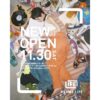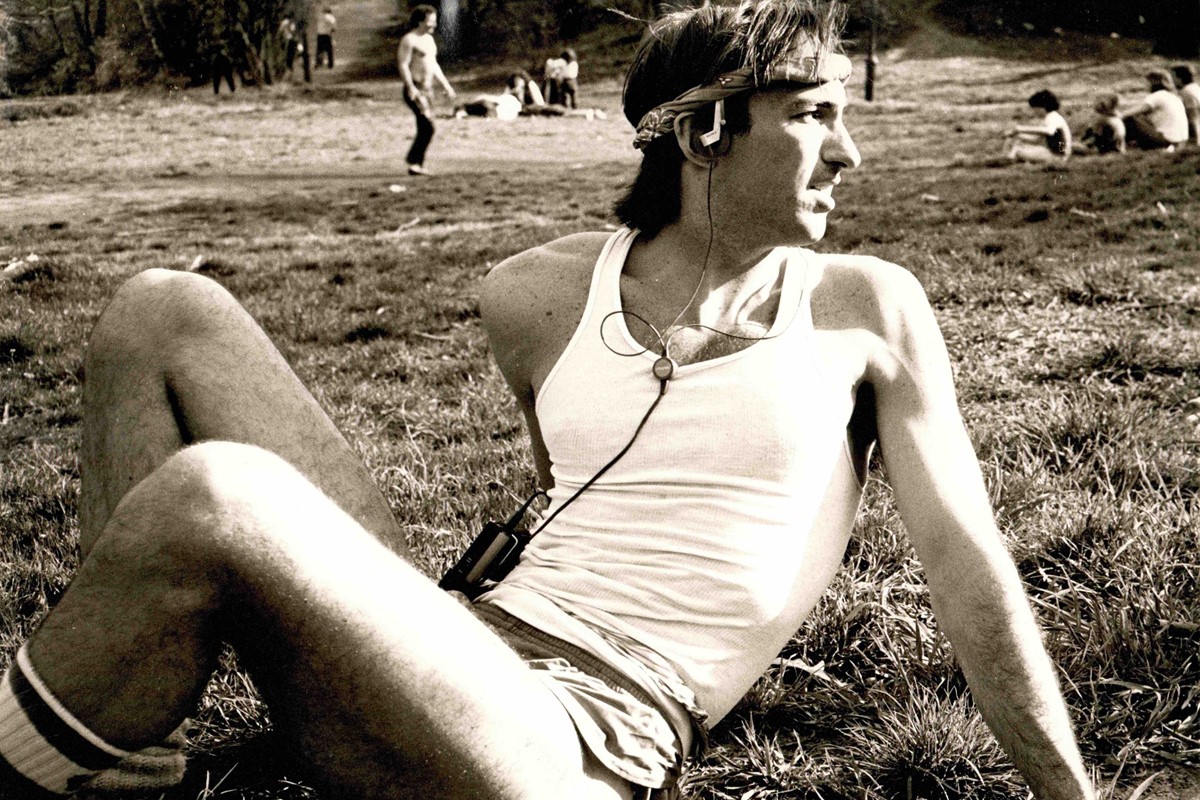
Rewrite
As the Jon Gould Collection of Andy Warhol Photographs is made public, now the story of the pair’s relationship can finally be told in full
Beneath the stiff silver wig and full-rimmed spectacles lay the wildly romantic heart of Andy Warhol. A master of mystique, he cast himself in oracular fashion, forever stoking a relentless curiosity about who he really was. Coming of age at a time when homosexuality was still criminalised, Warhol shrouded himself in asexuality while allowing his desires to find free expression in the work.
“The most exciting thing is not doing it. If you fall in love with someone and never do it, it’s much more exciting,” he decreed in The Philosophy of Andy Warhol (From A to B and Back Again), his landmark 1975 self-help memoir. He publicly positioned himself as the consummate voyeur with the 1964 film Blow Job before transforming Joe Dallesandro into an underground queer icon with the 1968 film Flesh. He also created more private, explicit works including homoerotic drawings during the 1950s and Sex Parts and Torsos, a 1977 series of Polaroid photographs of male hustlers readily found at fabled gay haunt, Everard Baths.
But making Sex Parts and Torsos cost Warhol far more than he could have dreamed: his 12-relationship with interior designer Jed Johnson, who saw the nude photographs as an act of betrayal and left shortly before Christmas 1980. Although Warhol was a devotee of Studio 54, at 52 years old he was not cut out for the single life and set his sights on Jon Gould, a dashing 26-year-old executive at Paramount Pictures who, like Johnson, also had a twin brother named Jay. “I just have to be in love now or I’ll go crazy,” Warhol said. That Gould was closeted may have only added to the intrigue, theirs becoming a secret relationship known only to Warhol’s inner circle until the 2022 Netflix series, The Andy Warhol Diaries.
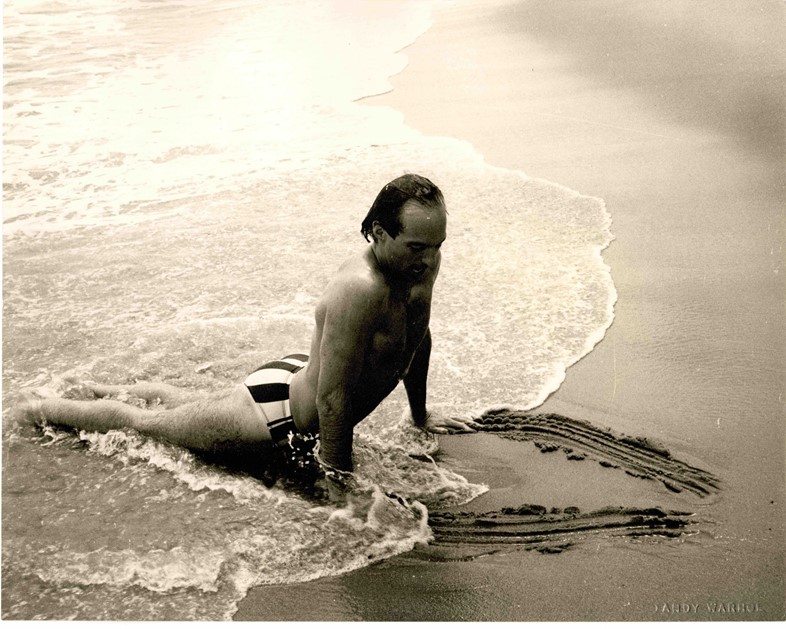
It is only now the story can be told in full, with the Jon Gould Collection of Andy Warhol Photographs. Under the stewardship of art dealer and curator James Hedges IV, founder of Hedges Projects, the world’s largest private collection of Andy Warhol photographs, the Jon Gould Collection brings together some 300 photographs that Warhol gave to Gould, which were passed through the family following his death from Aids in 1986. “From 1980 to 1985, Andy Warhol was obsessed with Jon Gould more so than anyone in his life, and Jon Gould was unquestionably the most photographed subject by Andy Warhol; nobody even comes close. There is something incredibly passionate going on here,” says Hedges, who has finally brought this extraordinary chapter to light.”
Hailing from a prominent New England family whose Massachusetts roots predate the Revolutionary War, Gould enjoyed a privileged life, his beauty, charisma, and peacockish displays of masculinity proving catnip to Warhol. “Warhol had a sense of longing and being on the outside, and Jon Gould was the penultimate intersection of all his fantasies,” says Hedges, who has been working with Pat Hackett, editor of the Diaries, mapping the photographs to the entries to reveal a layered portrait of the artist during his final years.
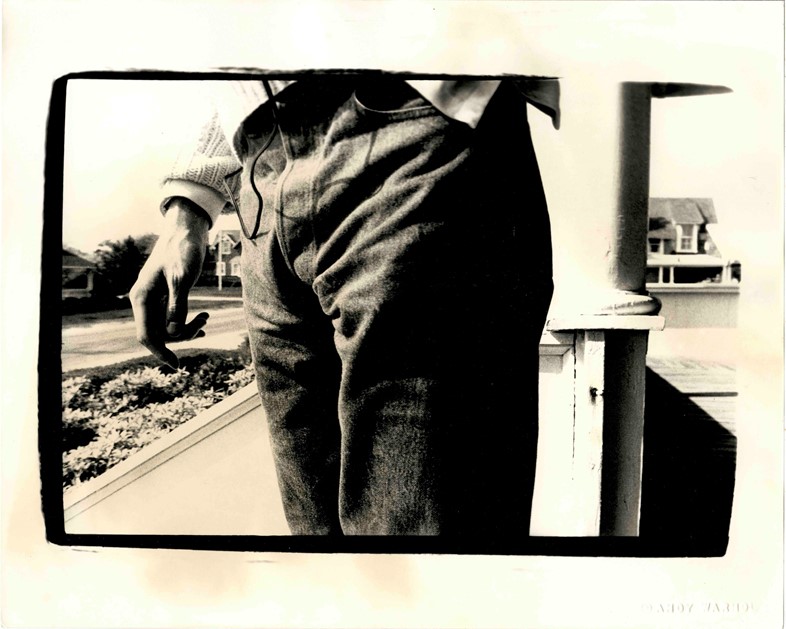
“From 1977-87, Warhol would use this 35mm camera [given to him by art dealer Thomas Ammann] to take pictures of everything – his work, art-making processes, travels, his obsessions, fetishes, celebrities, social environments, banal objects in his environment – and documented every day of the last decade of his life,” says Hedges, who notes that the full archive of 130,000 black and white photographs, which has been digitised by Cantor Arts Centre at Stanford University and made available to the public. Taken together, the archive and Diaries become a modern-day Rosetta Stone into the private life of Andy Warhol.
Gould’s arrival in Warhol’s life signalled a significant turning point. “Got up early and it looked beautiful out, but I’m in this period where I think, What is it all about?” Warhol said in the Diaries on April 16, 1981. “I put off telling the Diary about my emotional problems because last Christmas when I was having all the fights with Jed [Johnson] and he moved out, I couldn’t face talking about it … I’ve got these desperate feelings that nothing means anything. And then I decide that I should try to fall in love, and that’s what I’m doing now with Jon Gould, but then it’s just too hard.”
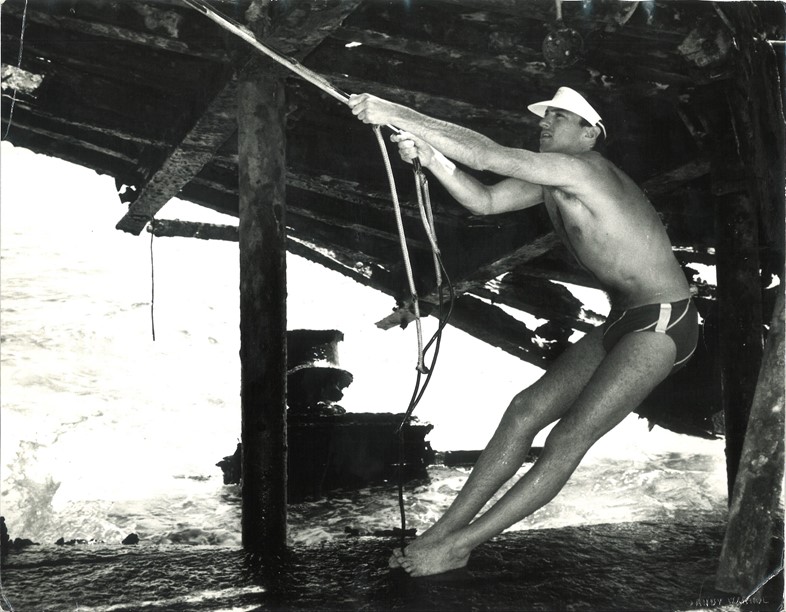
As Warhol wrestles with his emotions, his mind turns to business, dreaming of a Paramount collaboration that would never come. But in Gould, he would have the muse of a lifetime and, as time has shown, Warhol’s devotion was worth more than gold. “When I sit with his twin, Jay, and talk to him about Jon’s life, I get a vision of how much love, tenderness, and care there is to this day for his lost brother,” says Hedges. “To be given the opportunity to advocate for this material is something I take very seriously. These are precious memories, capturing the personal side of their affection and love.”
in HTML format, including tags, to make it appealing and easy to read for Japanese-speaking readers aged 20 to 40 interested in fashion. Organize the content with appropriate headings and subheadings (h1, h2, h3, h4, h5, h6), translating all text, including headings, into Japanese. Retain any existing
tags from
As the Jon Gould Collection of Andy Warhol Photographs is made public, now the story of the pair’s relationship can finally be told in full
Beneath the stiff silver wig and full-rimmed spectacles lay the wildly romantic heart of Andy Warhol. A master of mystique, he cast himself in oracular fashion, forever stoking a relentless curiosity about who he really was. Coming of age at a time when homosexuality was still criminalised, Warhol shrouded himself in asexuality while allowing his desires to find free expression in the work.
“The most exciting thing is not doing it. If you fall in love with someone and never do it, it’s much more exciting,” he decreed in The Philosophy of Andy Warhol (From A to B and Back Again), his landmark 1975 self-help memoir. He publicly positioned himself as the consummate voyeur with the 1964 film Blow Job before transforming Joe Dallesandro into an underground queer icon with the 1968 film Flesh. He also created more private, explicit works including homoerotic drawings during the 1950s and Sex Parts and Torsos, a 1977 series of Polaroid photographs of male hustlers readily found at fabled gay haunt, Everard Baths.
But making Sex Parts and Torsos cost Warhol far more than he could have dreamed: his 12-relationship with interior designer Jed Johnson, who saw the nude photographs as an act of betrayal and left shortly before Christmas 1980. Although Warhol was a devotee of Studio 54, at 52 years old he was not cut out for the single life and set his sights on Jon Gould, a dashing 26-year-old executive at Paramount Pictures who, like Johnson, also had a twin brother named Jay. “I just have to be in love now or I’ll go crazy,” Warhol said. That Gould was closeted may have only added to the intrigue, theirs becoming a secret relationship known only to Warhol’s inner circle until the 2022 Netflix series, The Andy Warhol Diaries.

It is only now the story can be told in full, with the Jon Gould Collection of Andy Warhol Photographs. Under the stewardship of art dealer and curator James Hedges IV, founder of Hedges Projects, the world’s largest private collection of Andy Warhol photographs, the Jon Gould Collection brings together some 300 photographs that Warhol gave to Gould, which were passed through the family following his death from Aids in 1986. “From 1980 to 1985, Andy Warhol was obsessed with Jon Gould more so than anyone in his life, and Jon Gould was unquestionably the most photographed subject by Andy Warhol; nobody even comes close. There is something incredibly passionate going on here,” says Hedges, who has finally brought this extraordinary chapter to light.”
Hailing from a prominent New England family whose Massachusetts roots predate the Revolutionary War, Gould enjoyed a privileged life, his beauty, charisma, and peacockish displays of masculinity proving catnip to Warhol. “Warhol had a sense of longing and being on the outside, and Jon Gould was the penultimate intersection of all his fantasies,” says Hedges, who has been working with Pat Hackett, editor of the Diaries, mapping the photographs to the entries to reveal a layered portrait of the artist during his final years.

“From 1977-87, Warhol would use this 35mm camera [given to him by art dealer Thomas Ammann] to take pictures of everything – his work, art-making processes, travels, his obsessions, fetishes, celebrities, social environments, banal objects in his environment – and documented every day of the last decade of his life,” says Hedges, who notes that the full archive of 130,000 black and white photographs, which has been digitised by Cantor Arts Centre at Stanford University and made available to the public. Taken together, the archive and Diaries become a modern-day Rosetta Stone into the private life of Andy Warhol.
Gould’s arrival in Warhol’s life signalled a significant turning point. “Got up early and it looked beautiful out, but I’m in this period where I think, What is it all about?” Warhol said in the Diaries on April 16, 1981. “I put off telling the Diary about my emotional problems because last Christmas when I was having all the fights with Jed [Johnson] and he moved out, I couldn’t face talking about it … I’ve got these desperate feelings that nothing means anything. And then I decide that I should try to fall in love, and that’s what I’m doing now with Jon Gould, but then it’s just too hard.”

As Warhol wrestles with his emotions, his mind turns to business, dreaming of a Paramount collaboration that would never come. But in Gould, he would have the muse of a lifetime and, as time has shown, Warhol’s devotion was worth more than gold. “When I sit with his twin, Jay, and talk to him about Jon’s life, I get a vision of how much love, tenderness, and care there is to this day for his lost brother,” says Hedges. “To be given the opportunity to advocate for this material is something I take very seriously. These are precious memories, capturing the personal side of their affection and love.”
and integrate them seamlessly into the new content without adding new tags. Ensure the new content is fashion-related, written entirely in Japanese, and approximately 1500 words. Conclude with a “結論” section and a well-formatted “よくある質問” section. Avoid including an introduction or a note explaining the process.
